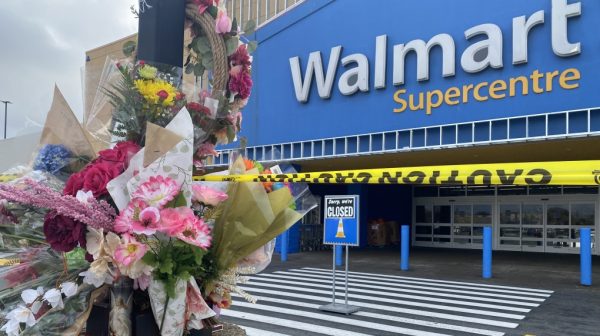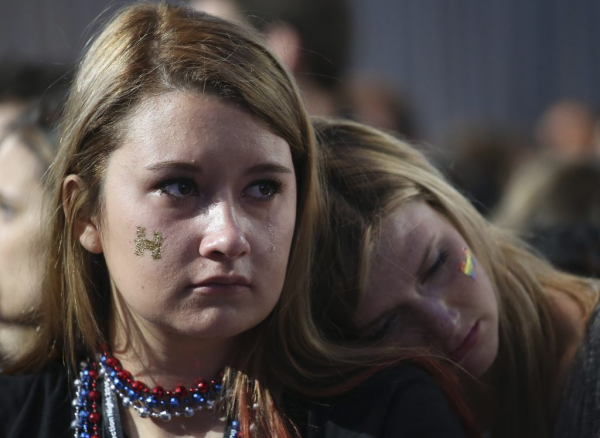Nairobi hotel target of terrorist attack
Somali men watch as fires burn amidst the destruction outside the Sahafi Hotel in Mogadishu, Somalia Sunday, Nov. 1, 2015. A Somali police officer says an explosion followed by heavy gunfire has been heard, thought to have been caused by a suicide car bomb, at the hotel often frequented by Somali government officials and business executives. (AP Photo/Farah Abdi Warsameh)
On Tuesday, January 15, 2019, a group of armed men, supposed Islamist extremists, burst into a hotel complex in Nairobi, Kenya with gunfire and explosions. At least twenty-one people in this terrorist attack–that lasted nineteen hours and ended Wednesday morning–have died, according to Kenyan President Uhuru Kenyatta.
Jason Spindler, an American, was one of the persons identified by his employer to be one of the twenty-one people who were killed in the attack. He was co-founder and managing director of I-DEV International, a firm for advising on business strategy for new markets. Spindler also was a survivor of the 9/11 terrorist attack in the United States.
This is the highest profile terrorist attack in the east African country since several years ago. It began at a bank inside the compound when an explosion ripped through three vehicles in a parking lot followed by a suicide blast in the lobby of the Dusit hotel, located in the DusitD2 compound (a group of shops and hotel facilities in the capital of Nairobi).
“As we were leaving, there were gunshots all over the place,” said Evans Ng’ong’a, who was inside the complex. “Attackers jumped over the fence and started shooting after the explosion.”
Crowds of people in bloodied and battered clothing began to run for their lives as armed officers escorted people to safety amid gunfire.
At least 700 people were evacuated when the attack began Tuesday afternoon, Kenyatta said.
“The security operation at Dusit complex is over, and all the terrorists eliminated,” Kenyatta told reporters without giving details. “Twenty-one innocent lives were lost through the hands of these murderers, terrorists,” Kenyatta also said.
The Kenya Red Cross in Nairobi began a blood drive to help victims and urged people to donate. They have also launched a telephone line to provide counseling and connect people who are searching for loved ones.
A Somali Islamist militant group that goes by the name of Al-Shabaab has taken responsibility for the attack, according to SITE Intelligence Group. In 2013, this group targeted the shopping center of Westgate, killing 67 people, an attack that lasted seven days. The group also killed nearly 150 people, many of them students, in another attack on Garissa University College in Kenya in April 2015.

I am senior this year at NHS, and I would like to pursue a career in Journalism. I enrolled in this class to prepare for that study, to improve my writing...








